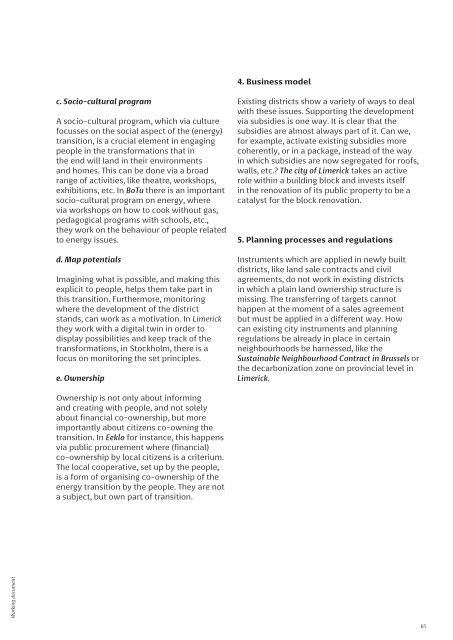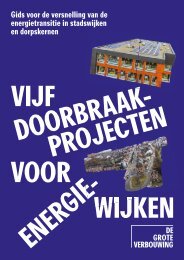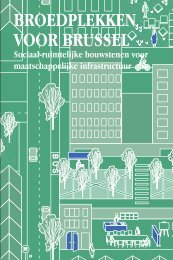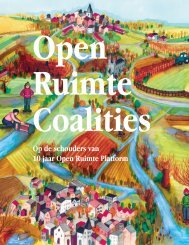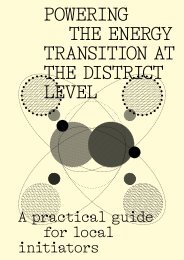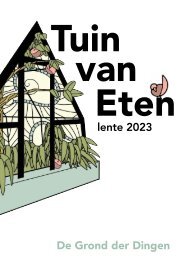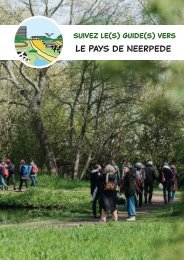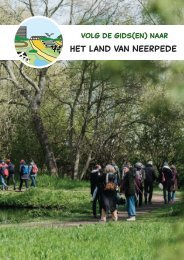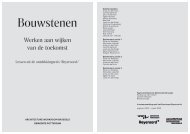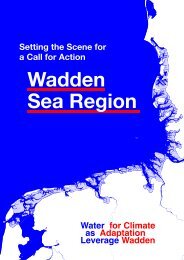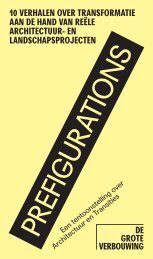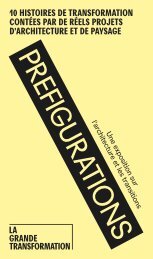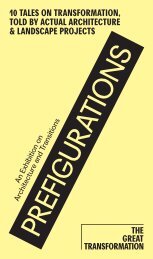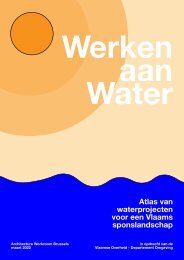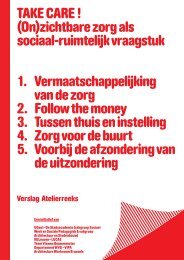Cities4PEDs Atlas_November 2021.pdf
Atlas - From 7 case interviews to recurring strategies and PED relevant aspects
Atlas - From 7 case interviews to recurring strategies and PED relevant aspects
- No tags were found...
Create successful ePaper yourself
Turn your PDF publications into a flip-book with our unique Google optimized e-Paper software.
4. Business model<br />
c. Socio-cultural program<br />
A socio-cultural program, which via culture<br />
focusses on the social aspect of the (energy)<br />
transition, is a crucial element in engaging<br />
people in the transformations that in<br />
the end will land in their environments<br />
and homes. This can be done via a broad<br />
range of activities, like theatre, workshops,<br />
exhibitions, etc. In BoTu there is an important<br />
socio-cultural program on energy, where<br />
via workshops on how to cook without gas,<br />
pedagogical programs with schools, etc.,<br />
they work on the behaviour of people related<br />
to energy issues.<br />
d. Map potentials<br />
Imagining what is possible, and making this<br />
explicit to people, helps them take part in<br />
this transition. Furthermore, monitoring<br />
where the development of the district<br />
stands, can work as a motivation. In Limerick<br />
they work with a digital twin in order to<br />
display possibilities and keep track of the<br />
transformations, in Stockholm, there is a<br />
focus on monitoring the set principles.<br />
e. Ownership<br />
Existing districts show a variety of ways to deal<br />
with these issues. Supporting the development<br />
via subsidies is one way. It is clear that the<br />
subsidies are almost always part of it. Can we,<br />
for example, activate existing subsidies more<br />
coherently, or in a package, instead of the way<br />
in which subsidies are now segregated for roofs,<br />
walls, etc.? The city of Limerick takes an active<br />
role within a building block and invests itself<br />
in the renovation of its public property to be a<br />
catalyst for the block renovation.<br />
5. Planning processes and regulations<br />
Instruments which are applied in newly built<br />
districts, like land sale contracts and civil<br />
agreements, do not work in existing districts<br />
in which a plain land ownership structure is<br />
missing. The transferring of targets cannot<br />
happen at the moment of a sales agreement<br />
but must be applied in a different way. How<br />
can existing city instruments and planning<br />
regulations be already in place in certain<br />
neighbourhoods be harnessed, like the<br />
Sustainable Neighbourhood Contract in Brussels or<br />
the decarbonization zone on provincial level in<br />
Limerick.<br />
Ownership is not only about informing<br />
and creating with people, and not solely<br />
about financial co-ownership, but more<br />
importantly about citizens co-owning the<br />
transition. In Eeklo for instance, this happens<br />
via public procurement where (financial)<br />
co-ownership by local citizens is a criterium.<br />
The local cooperative, set up by the people,<br />
is a form of organising co-ownership of the<br />
energy transition by the people. They are not<br />
a subject, but own part of transition.<br />
Working document<br />
61


